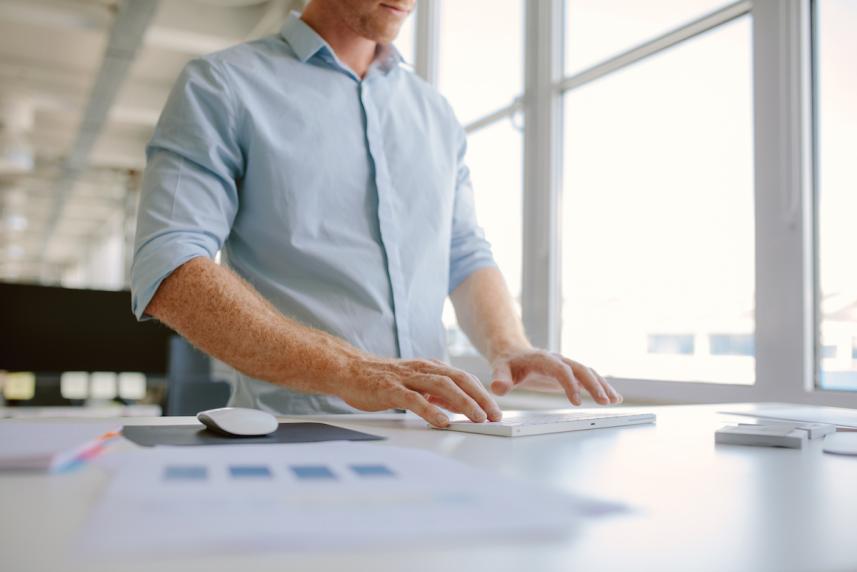Why the term "bad posture" needs to be rethought
Is there really such a thing as bad posture?

Do you hunch over your computer screen for hours at a time? Or spend evenings slumped in front of the TV? Do you recall being told by your parents or teachers, “Don’t slouch—sit up straight and maintain good posture”? Years later, many of us may still be pondering our posture, especially as it relates to neck, back, or shoulder pain. But instead of focusing on so-called “bad” posture, why not reframe the conversation around spine health as something positive?
“We are trying to get away from the idea of bad posture,” explains physical therapist Mary-Catherine Fraser Saxena, clinic director at Toronto-based fitness club Totum Life Science. “No posture is bad in and of itself. Rather, there are postures that we stay in too long or too often. Even if you’re sitting very straight and tall, you can’t hold that for seven hours—doing that, you would be in pain, too,” she notes. Human bodies are made to move, she says, and the more we move, the better we are going to feel. Here are a few ways to add some movement breaks to your day.
- If your office offers a standing-desk option, try it out. You can stand for a while, sit for a while, or even lean for a while.
- If you have an ergonomic chair at your workspace, remember that it’s adjustable. “Play around with it, tilt it back, move it forward,” Fraser Saxena says. “It doesn’t have to be static, like, ‘This is my chair and that’s it.’ It can move around depending on what you do during your day.”
- If you’re lying on a couch—reading or watching TV, for example—flip over. Lie on your stomach with your head resting in your hands for a few minutes, Fraser Saxena suggests, or switch it up in other ways.
- If you can’t go out to lunch, at least get up for it. If you sit most of the day, stand and eat. If you have a phone call you can take while walking, or at least while standing, do it.
- Move your garbage can outside of your desk area, so that if you have to dispose of something, you’re forced to get up and take a few steps to do so.
- Hydrate regularly throughout the day, which will lead to more frequent trips—aka more mobility breaks—to the bathroom.


